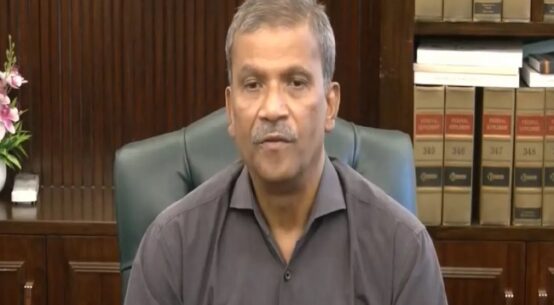
The government is set to implement a gradual ban on vehicle honking across Dhaka city by December, with the goal of making the entire capital a “quiet zone” by early next year, according to Syeda Rizwana Hasan, adviser to the Ministry of Environment, Forest, and Climate Change. This initiative is part of a larger effort to combat noise pollution, which will later expand to other major cities in Bangladesh.
In an exclusive interview with UNB, Rizwana Hasan revealed that steps are already underway, starting with key areas of Dhaka. She emphasized that the government is prioritizing public awareness campaigns before enforcing penalties.
The initiative aims to address the deep-rooted habit of honking in urban areas. Adviser Rizwana explained that the process would begin with a comprehensive public awareness campaign, followed by strict enforcement of laws against unnecessary honking. Starting in December, drivers caught honking without cause will face a 500 taka fine for the first violation, with increased penalties for repeat offenses.
“Changing habits will take time, but with proper education and enforcement, we can significantly reduce honking,” she said. She stressed the importance of educating both drivers and the general public before fines are imposed, underscoring the need for a shift in public behavior regarding noise pollution.
The adviser highlighted the growing concern over the health risks posed by constant noise pollution. “Unnecessary honking and loudspeakers are disrupting normal life and contributing to serious health issues,” she said, adding that noise pollution is linked to hearing loss, heart disease, high blood pressure, and neurological disorders.
“Now is the time to address noise pollution alongside other forms of environmental degradation if we want to ensure sustainable socio-economic development,” Rizwana added.
Rizwana Hasan also pointed out the cultural and religious significance of reducing noise. She referenced Islamic teachings that encourage speaking in lower tones to avoid causing discomfort to others. “True power lies in reasoned communication, not in volume,” she said, urging drivers to consider whether honking is necessary, particularly when traffic lights turn green.
She called on both drivers and the public to pledge to stop unnecessary honking, adding that restrictions on honking would soon be part of vehicle license renewal requirements. “We need collective efforts to bring about real change,” she said.
As part of this initiative, on October 1, the Hazrat Shahjalal International Airport and its surrounding three-km radius were declared a “quiet zone,” where honking is strictly prohibited. Violators in this area may face fines or even imprisonment. Air Vice Marshal Md Monjur Kabir Bhuiyan, Chairman of Civil Aviation Authority of Bangladesh (CAAB), confirmed that the quiet zone extends from Scholastica school to the Le Meridien Hotel.
This follows a series of measures implemented at the airport to make the area noise-free. The official launch of this quiet zone was overseen by Rizwana Hasan on October 1, signaling the government’s commitment to addressing noise pollution in the city’s most sensitive areas.
Moving forward, the government plans to introduce similar noise reduction initiatives in other major cities. Rizwana Hasan called on citizens to support the program, highlighting the importance of creating a culture that discourages excessive noise for the well-being of all.
“If we can stop honking, especially in large vehicles like buses and trucks, we can prevent many serious health issues,” she said, noting that other sources of noise pollution, such as loudspeakers and construction work, must also be addressed.


